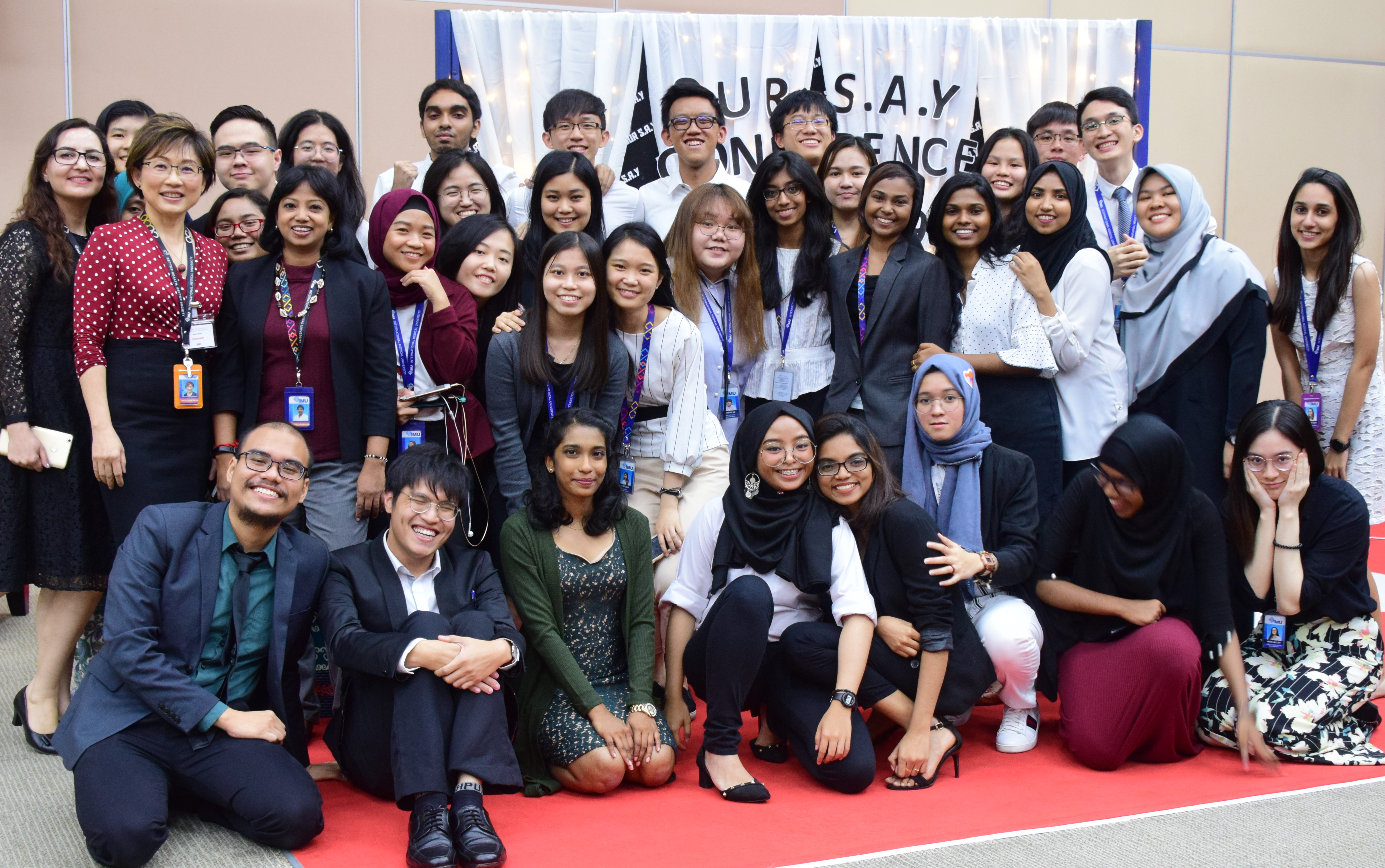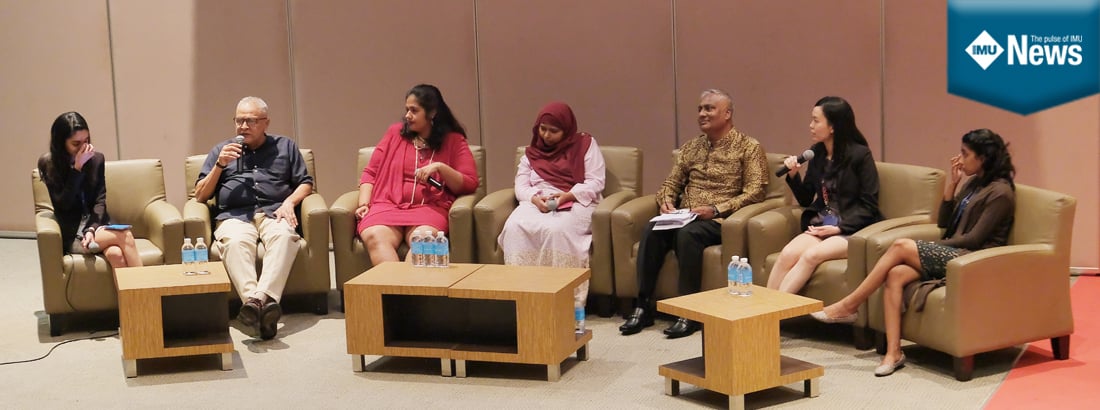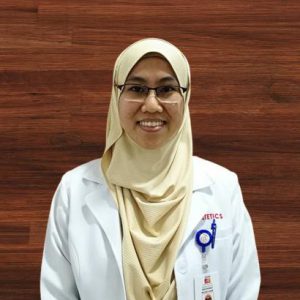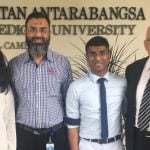– A “By-Youths-4-Youths” initiative by Psychology Department and Club, IMU Cares and Dignity for Children Foundation –
16 March 2019 – The International Medical University (IMU) held its first Our Society, Adults and Youths (Our S.A.Y) conference held at its campus in Bukit Jalil. This is Malaysia’s first public conference organised by youths (youths of IMU) for youths which reached out to parents, youths, educators and mental health practitioners to address pressing mental health issues faced by our youths. In Nov 2018, the Health Minister YB Dr Zulkefly Ahmad urged stake holders including NGOs and other governmental agencies to work together to increase the awareness level on mental health and to get rid of the stigma that mental health problems are a disease. Various NGOs have also voiced an urgent need for mental health programmes to help those in need citing many suicides and suicide attempts by young people. Rising to the call of the nation to address youths’ mental health, the IMU Department of Psychology, Psychology Club and IMU Community Engagement in collaboration with Dignity for Children Foundation have taken a proactive step to promote in-depth awareness of the aforementioned mental health and social issues. The conference incorporated four major contemporary issues faced by society, namely, depression and anxiety, bullying and cyberbullying, substance abuse and addiction and also healthy relationships and harm reduction.
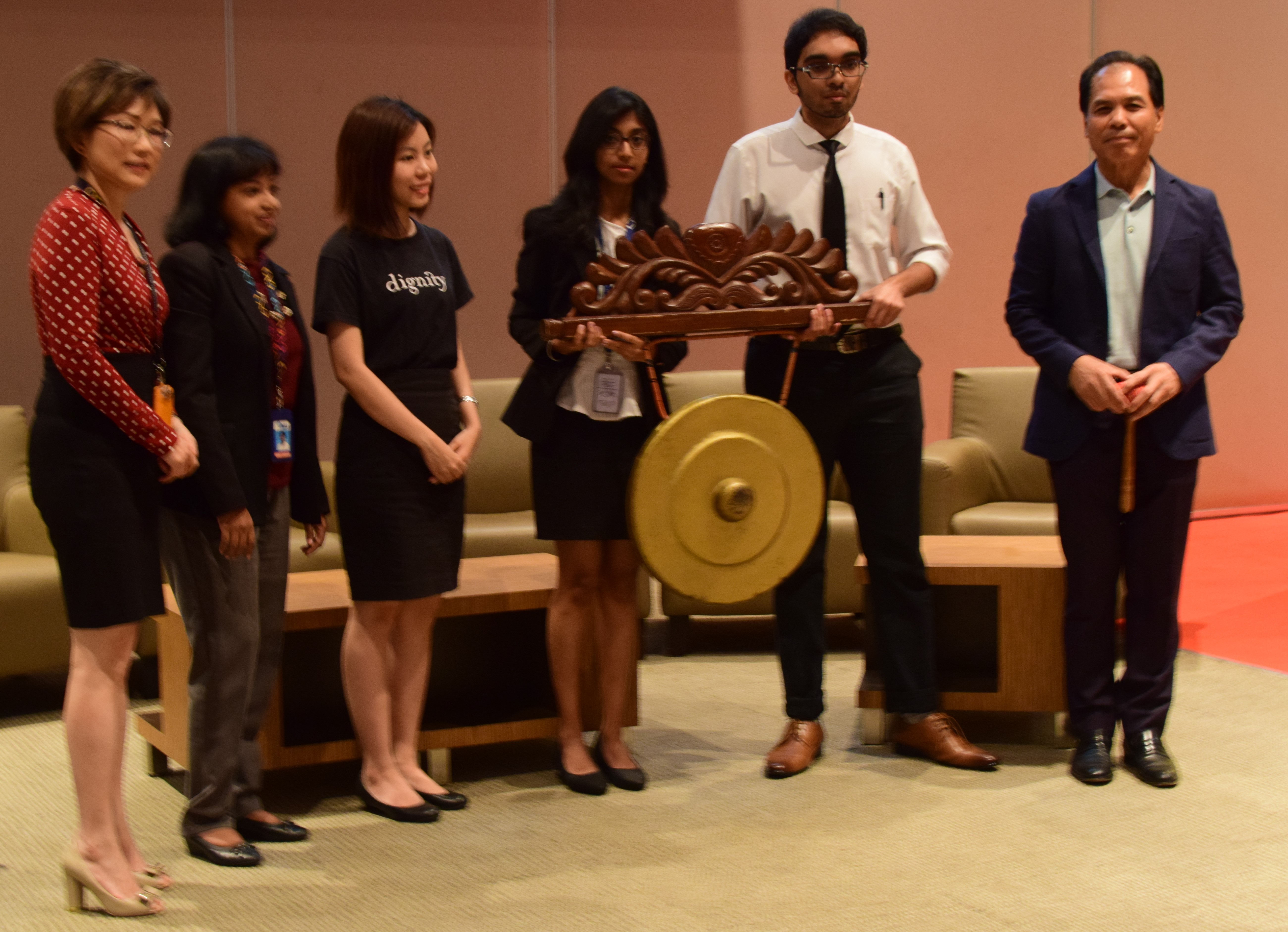
The event was officiated by the university Vice-Chancellor, Prof Abdul Aziz Baba. In his welcoming speech he spoke about the importance of this event, accentuating the four major issues affecting the contemporary society. He made reference to recent reports in the USA of societal ills that affect contemporary society and have taken centre stage in the public eye and that depression, anxiety, bullying, interpersonal relationships, substance abuse and behavioural addiction are some of the issues that are magnified as they are alarmingly prevalent, especially among the youths. Prof Aziz highlighted that educating the general public on the causes and proliferation of these issues among the youth is imperative in ensuring that society is better informed on how to root them out.
I am really happy to see that our students in Psychology Department and Psychology Club with their advisors Dr Shamala and also Prof Khoo from the Community Engagement office of the university, have taken this first important step to address the risk factors, mental distress and the efforts that can be done to mitigate mental health among the youths – Professor Abdul Aziz Baba, Vice-Chancellor of the International Medical University
Although mental health is important to the overall health of a person, it is unfortunately also almost inseparable from stigma among those who are uninformed particularly when it relates to the vulnerable youths. Depression and anxiety are significant in the context of the psychological and psychosocial impact on teenagers. Troubling statistics from the 2017 National Health and Morbidity survey showed that among teenagers aged 13 to 17 years old, 18.3% suffered from depression and 39.7% had anxiety problems. These numbers have doubled from 2011 to 2017. In Malaysia, the National Health and Morbidity Survey shows that one out of five adolescents feels depressed, two out of five feel anxious, 11.12% have suicidal ideation and 10.1% had attempted suicide and the pervasive stigma on mental illnesses still exists and studies indicated that 40% of Malaysians would suffer from mental health issues in their lifetime. 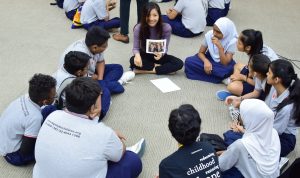 Within these contexts, this first national public conference addressing youths’ mental issues has been aptly themed “Youths’ Mental Well-being: Dare to be Aware” and aimed at reaching out to youths, parents, teachers, counsellors and the supporting environment to bring awareness on important issues on mental health that are plaguing our society. Well-known speakers in their own fields of expertise were invited to deliver key-notes on these issues and were aimed at encouraging parents and youths to synthesize ideas for a better understanding of the cross-generational divide. Workshops that followed allowed participants to work in depth on the various selected topics relevant to them. These lectures were then followed by interactive workshops targeting youths on dealing with the intricacies of the targeted topics. The forum provided a platform for participants to exchange knowledge and experiences and brought together different perspectives for discussion. Associate Prof Anasuya Jegathesan, a counsellor and faculty of Taylor’s University provided insights into bullying amongst youths and how the habit of bullying at a young age has a high likelihood of persisting till later in life, possible becoming criminal behaviour once the youth is older. She further elaborated on how cyber bullying has emerged as a major concern in the technological era as widely-connected online communication through social media leaving the door open for the abuse of that privilege. Mr Chris Sekar, an addiction therapist with the Gleneagles Hospital brought with him years of enriching experiences to share with the participants. His perspectives and approach were extremely captivating and insightful through his first-hand experiences.
Within these contexts, this first national public conference addressing youths’ mental issues has been aptly themed “Youths’ Mental Well-being: Dare to be Aware” and aimed at reaching out to youths, parents, teachers, counsellors and the supporting environment to bring awareness on important issues on mental health that are plaguing our society. Well-known speakers in their own fields of expertise were invited to deliver key-notes on these issues and were aimed at encouraging parents and youths to synthesize ideas for a better understanding of the cross-generational divide. Workshops that followed allowed participants to work in depth on the various selected topics relevant to them. These lectures were then followed by interactive workshops targeting youths on dealing with the intricacies of the targeted topics. The forum provided a platform for participants to exchange knowledge and experiences and brought together different perspectives for discussion. Associate Prof Anasuya Jegathesan, a counsellor and faculty of Taylor’s University provided insights into bullying amongst youths and how the habit of bullying at a young age has a high likelihood of persisting till later in life, possible becoming criminal behaviour once the youth is older. She further elaborated on how cyber bullying has emerged as a major concern in the technological era as widely-connected online communication through social media leaving the door open for the abuse of that privilege. Mr Chris Sekar, an addiction therapist with the Gleneagles Hospital brought with him years of enriching experiences to share with the participants. His perspectives and approach were extremely captivating and insightful through his first-hand experiences. 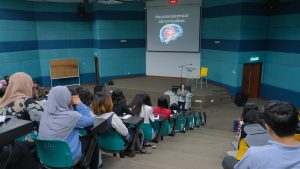 Dr Chua Sook Ning, a clinical psychologist from Nanyang Technology Institute (NTU) of Singapore and a founder of Relate Malaysia provided the much needed motivation to all the participants particularly on the very important issue of depression and anxiety amongst youths and illustrated with innumerable examples that are relatable to youths if not all participants. Eg describing the various factors such as family and peer expectations as well as academic pressure which can induce negative emotional and behavioural effects such as low self-esteem, loss of interest, social isolation, need for reassurance and potential suicide. Dr Rabiatul Badariah, a medical doctor and a sexual health activist involved with Pink Triangle and the Federation of Reproductive Health Associations Malaysia (FRHAM) provided gems of insight and wisdom into issues of sexual health due to the increasing prevalence of youths’ sexual behaviour such as underaged sex, teenage pregnancy and sexual crimes – issues which have come under scrutiny and increasingly making the headlines. Feedback from the participants were overwhelmingly positive with comments on the usefulness and timeliness of this conference and that “the speakers were very knowledgeable” and “very motivating for us”.
Dr Chua Sook Ning, a clinical psychologist from Nanyang Technology Institute (NTU) of Singapore and a founder of Relate Malaysia provided the much needed motivation to all the participants particularly on the very important issue of depression and anxiety amongst youths and illustrated with innumerable examples that are relatable to youths if not all participants. Eg describing the various factors such as family and peer expectations as well as academic pressure which can induce negative emotional and behavioural effects such as low self-esteem, loss of interest, social isolation, need for reassurance and potential suicide. Dr Rabiatul Badariah, a medical doctor and a sexual health activist involved with Pink Triangle and the Federation of Reproductive Health Associations Malaysia (FRHAM) provided gems of insight and wisdom into issues of sexual health due to the increasing prevalence of youths’ sexual behaviour such as underaged sex, teenage pregnancy and sexual crimes – issues which have come under scrutiny and increasingly making the headlines. Feedback from the participants were overwhelmingly positive with comments on the usefulness and timeliness of this conference and that “the speakers were very knowledgeable” and “very motivating for us”.
| Interesting Comments from Participants |
|---|
| As someone who is not familiar with the discipline, most of the presentation material and content fuelled a real curiosity and understanding that there is a very rich and beneficial knowledge and techniques that would greatly help the clients/students I work with. They provided a great balance between educational slides and experiential content. Their friendly approach and non-jargon filled language made this material accessible and easy to understand. On top of that, anyone practicing in mental health, no matter what practice model/frame of reference, needs to attend this conference! This is the future outlook of person-centered practice for mental health! Associate Prof Dr Anasuya not only well versed, presents information in an understandable manner and allows for experiential opportunities but is also inspiring and provides the challenge to apply the knowledge with best practice. I have become motivated to explore the non-linear dynamic approach more. – Hyma from HilsLearning |
| I’m very excited to go and share my ideas with a wide variety of individuals in my college. This course is what I needed to revive my energy to advocate others and I would recommend this seminar to my friends. Thank You! – Ahmad Raouf, student from USM-UPSI. |
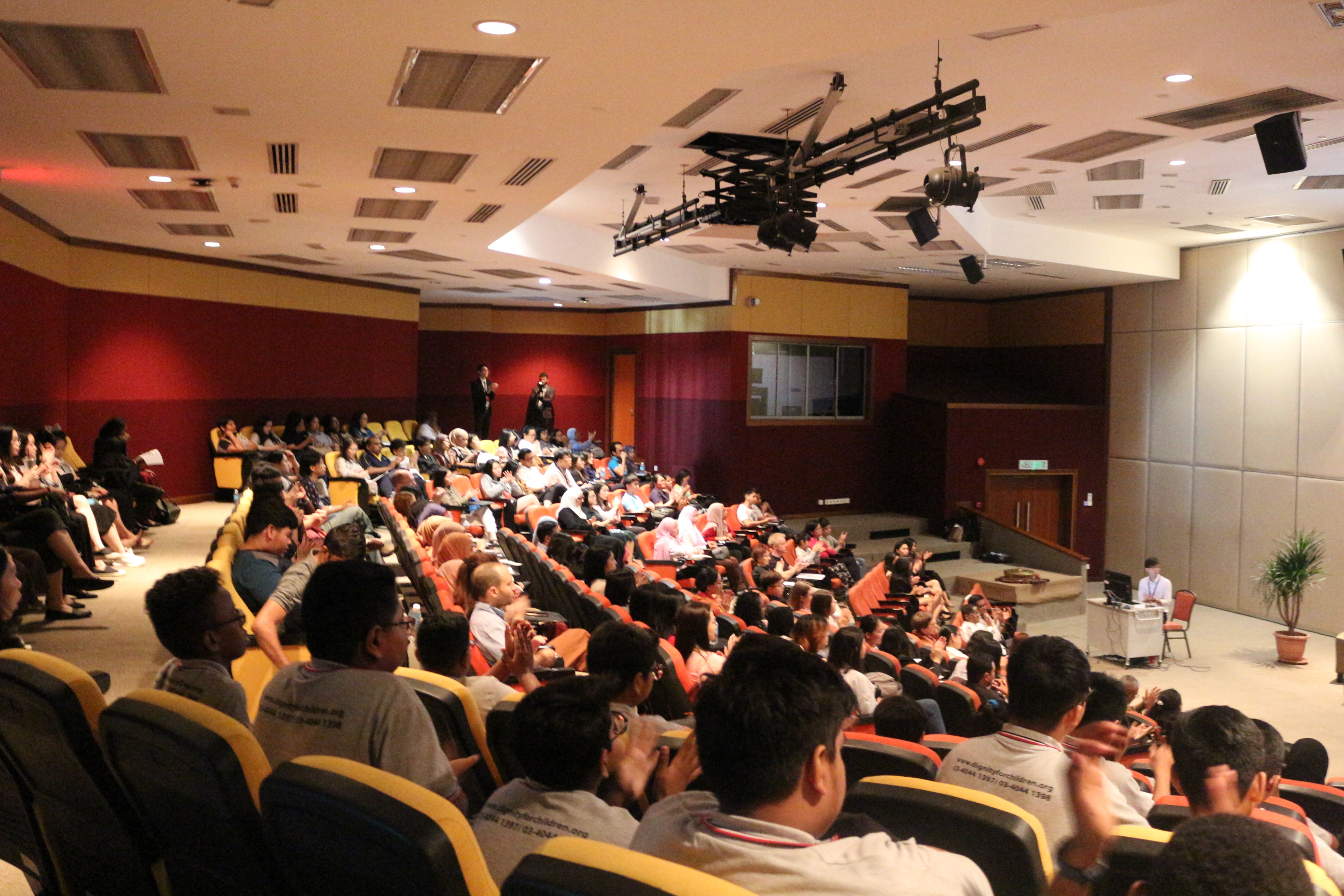
There were calls and requests for similar programmes to help addresses such issues. This conference will be closely followed up with collaborative initiatives to reach out to youths and their supporting environment.
At IMU, there are opportunities to apply psychological theories into real life settings by organising events. In addition to giving one to one attention when required academically, the lecturers are also willing to go extra mile in making sure that the students are well guided in exploring their interest and advising them in carrying out events. The bonding of lecturers and students are further strengthened via organising these events at the university.
Psychology students at IMU do not only concentrate on excellence in academia but also involve themselves in organising university events such as raising awareness on mental health. By doing so, they build up their soft skills with regards to leadership, team building, communications and also resilience. This is done under the guidance by a team of experts and psychologists from diverse field, for instances from the developmental psychologist, clinical psychologist, industrial and organizational psychologist, psychologist and counsellors. In this way, IMU Psychology students are also exposed to diverse fields of psychology which will broaden their view and knowledge aiding them in choosing their future career pathway, towards postgraduate level to fulfil their desires to become a full-fledged psychologist.
